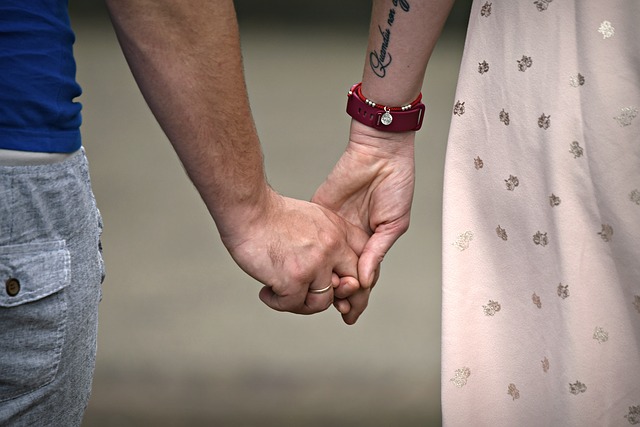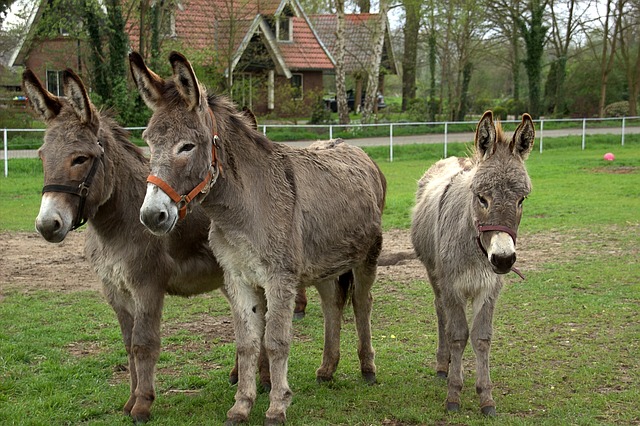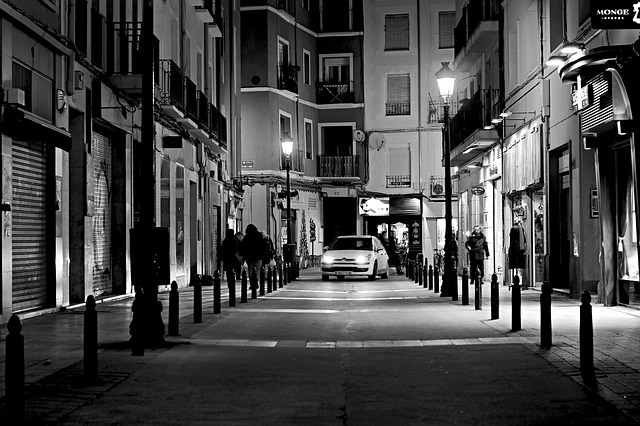
“For God’s sake! I’ve got two children and a husband!”
So saying, Vera pulled away from our embrace, glaring at me angrily as she stepped backwards. “You can’t just—”
“I know, I know, I’m sorry,” I apologised, then walked away quickly, doing my best to hide my misery and humiliation after the disastrous failed kiss.
My day at Faradays Advertising Ltd, the grand old 1930s building in the East End of London, didn’t get much better. In the late afternoon I had a fierce row with my boss, Tony. Tony was being unreasonable, and, perhaps because I was so upset about ruining my relationship with Vera, after months of being her friend, that I spoke out of turn and things escalated. I told him that he could stuff his job. He told me to fuck off. It was weird because normally we got on pretty well, and truth to tell, I actually liked him a lot.
So I’d lost my dreamed-of chances of happiness with Vera and I’d lost my job.
And now, after brooding alone at my desk, it was 6 o’clock on a Friday night, and I’d decided to dash off home and try to forget about my day from hell. When the lift door was just about to shut, I stuck my foot in the gap and forced it open again, sliding inside quickly before the doors closed. It didn’t move at first, then travelled down abruptly, like a stone. When I turned round I saw that Vera was beside me, and Tony was in the corner. The only other occupant in the lift was Jonathan Franklyn, a tall skinny, silent kind of guy who was usually so laid back, he was practically comatose, indeed his nickname was ‘Cool Jon’. Tonight he looked anything but cool. He was strange, wild-eyed and alert, hyped up about something. I wondered if he’d been taking drugs.
Talk about embarrassing.
Naturally we avoided looking at each other. And then the lights went out. The lift ground to a halt between the third and second floors.
My shame was complete.
“It’s no good, everyone’s gone home,” said Tony, a few moments later. He was watching Jonathan Franklyn frantically pressing the emergency help buttons by the light of his mobile phone. “Besides, if the power’s out, the emergency communication won’t be working either. And my mobile’s got no signal – must be because these old lifts are made of specially thick steel. So we’re stuck here for now.”
“But I have to go,” panicked Jonathan, totally out of character, almost shouting. “No! No!” he yelled frantically. “I have to get out of here!”
“Sorry, Old Fruit, but you can’t. There’s nothing we can do but wait,” Tony said resignedly as he slid down the wall and sat on the floor, producing a bottle of whisky from a bulging carrier bag by his side. “Lifts are only machines, and machines are a lot like people. Sometimes they just reach a breaking point and there’s nothing anyone can do about it. Just like I reached breaking point yelling at poor old Chris today. Anyone want to join me in a drink to pass the time?”
“A drink?” Jonathan snapped. “Do you realise what’s happening to me? Do you have any idea?” And then I could see that tears were forming in his eyes as his voice cracked. “How the fuck can you talk about a drink? Breaking point? I’ve fucking reached breaking point, I tell you. . .”
“Jonathan, calm down,” Vera told him, moving close beside him and putting a hand on his arm. Vera is kind and sensitive. That’s one of the reasons why I fell in love with her.
He gave way to tears as he backed into the corner and sank to the ground.
“I’m supposed to be on platform five of Paddington Station in half an hour,” he told us all. “I’ve arranged to meet this girl, Sophie. She’s ill. You see, she has these mental issues, serious problems with depression. She has no self confidence. She won’t believe I want to be with her, she thinks that I’m like all the other guys she’s known that have let her down. So she set me this test. She told me that if I was prepared to go to Edinburgh with her, tonight, drop everything and just go, make a real commitment, then she’d believe I cared for her. If I don’t turn up, I dread to think what will happen. You see she’s tried suicide before now. That’s how we met, we were in the same mental illness support group. I saved her last time, by going round to her flat and talking all night. I’m afraid that when she gets to the station and finds I’m not there, and that she can’t even reach my mobile, she’ll think I’ve changed my mind. And then she might…”
Vera nodded sympathetically, the strange surreal mobile phone light swirling up from under her chin, highlighting her lovely sympathetic eyes.
“It’ll be all right,” she tried to reassure him. “I know it seems hopeless now, but you’ve got to believe in her. Come on now Jonathan, don’t give up! Close your eyes now, and think about her. Believe in her. Believe that she’s not going to do anything stupid, that you believe in her being strong and trusting in you. In my experience people are often much stronger than we think they are. ”
“Not Sophie. Sophie’s is just like a little straw in the wind.” Jonathan put his head in his hands and wept quietly. “I was going to look after her.”
Tony, who’d been watching the scene was holding up the bottle of whisky towards Vera.
“Oh stuff it, why not?” said Vera, as she sat down on the floor beside him. She rooted around in her handbag, producing some paper cups. “Luckily I bought these for my daughter’s birthday party, so we won’t have to pass round the bottle. “Are you having any, Chris?”
“You bet.”
So we all sat on the floor, and Vera and I both accepted a paper cup generously full of whisky and began sipping, illuminated by the light of our phones, as if we were taking part in some ghoulish Halloween party. The three of us kept passing the bottle round and Tony kept adding more and more.
At first we drank silently, nursing our own thoughts. But after an hour, and half of the second bottle of whisky had been drunk, the other two were more relaxed, and I suppose I was too.
“’S Funny,” Tony declared. “I’ve got something to say to you all because I’m pleasantly drunk.” He paused, smiling stupidly. “I’m an alcoholic.”
“I did wonder why you were carrying two bottles of whisky around with you,” Vera commented dryly.
“Seriously. My life is one great shitstorm, so I drink,” he went on. “And Chris.” He looked across at me. “I really was a bastard to you today, and I’m sincerely sorry. I shouldn’t have gone on at you like that. I apologise (apppolloigizze) unreservedly, Old Fruit. Truth is, I like you. I like working with you. Please (Pleeeze) don’t leave the firm.”
I looked at him and smiled myself, feeling the effects of the alcohol, and the loss of my inhibitions. “Actually I wanted to apologise to you, Tony. You were right to bollock me today. I screwed up that job.” I looked across at Vera, beyond caution or tact. “I made a fool of myself with Vera, and I felt like shit. I still do . But I shouldn’t have shouted back at you—”
“Forget it, mate,” he muttered.
Vera stared ahead. Her face was anything but beautiful, but it was full of personality, and for me, a girl’s lovely personality beats pure aesthetic beauty every time.
“You didn’t make a fool of yourself, Chris. I was just shocked when you tried to kiss me. I wanted you to know my situation.” She shook her head slowly. “And since we’re telling each other home truths, you might as well have mine.” She spoke slowly and deliberately, the way inebriated people sometimes do. “Everyone thinks I’m happy and well adjusted, the woman who everyone goes to for help and sympathy and a shoulder to cry on. That I have this wonderful life, that I’m some kind of Mother Teresa. Well I’m not.” She paused. “The fact is, it’s all a mask I hide behind. I like coming here to work, I enjoy being nice to everyone and making the best of things because my home life is so awful. My husband and I want to get divorced, but neither of us wants to give up the house. We hate each other, can’t even bear to be in the same room. Now the children are getting older it’s not so easy to keep up the pretence. But today, Chris, after you almost kissed me, I realised I can’t go on like this. I’ve got to face facts. At least he won’t fight me for custody of the children. He’s as disinterested in them as he is in me.”
“He must be mad,” I told her. “If I had a wife like you. . .”
“What?” she asked.
“I’d never look at anyone else.” I felt myself blushing, feeling I’d said too much. “Sorry, I shouldn’t have said that.”
“No,” she replied, looking straight at me. “You should have done. You’re being straight with me. Just like I had to make it clear to you today that I’m a mother, and I’ll never be separated from my children. And that if you want a relationship with me, the children are part of the package. Most guys would run a mile. I wanted to save you the embarrassment of telling me you didn’t want to get involved with me and my baggage.”
“I’m not most guys,” I told her. “And children aren’t baggage. They may not like me. If you get involved with me it might be a disaster. But I’m prepared to take the risk if you are.”
“Oh, I’m a risk taker.” She looked across and me and nodded seriously. “I always have been.”
“Well you two, you may as well know my little secret,” Tony said miserably into the silence , taking a large slug of whisky, and pouring himself another. “They say If I go on drinking like this I’ll be dead within a year. And don’t talk to me about marriage. It was drinking that broke up mine, and I never see my wife or kids anymore. They despise me. I really want to give up the booze, but I can’t. I tried Alcoholics Anonymous, but I just couldn’t get on with them. Not my thing.”
I took a breath. “You know you said you always liked me, Tony?” I asked him.
He nodded.
“In those AA groups, don’t they allocate you some kind of special friend, someone you can ring when you’re going to fall off the wagon and they come round and talk to you, help you over the crisis?”
“Yeah, if you make it that far.” He stared at me.
“Well, I’ll do it for you,” I finished lamely. “If you want to give it up, you don’t have to do it alone. I’ll help you all I can. Call me up, anytime, day or night and I’ll be there.”
“Why would you do that for me?”
“Because I like you. And I don’t want you to die.”
“Do you really mean it?”
“Yes,” I told him. “I really mean it.”
Another hour went by. Vera was sitting beside poor Jonathon, her hand on his arm, and I sat on his other side. He was just staring ahead miserably. He hadn’t drunk any of Tony’s whisky.
“I know Sophie is going to kill herself,” he muttered to us both. “I just know it.”
“Jonathan,” Vera told him gently. “You think she’s weak and she’s given up on life. But in my experience people are often much stronger than you think they are. You have to believe in her.”
Just then the lights came on, and the loudspeaker crackled into life.
“We’ll have you all out of there in ten minutes,” said the voice, and absurdly I noticed that the man had an Aberdeen accent.
The real surprise was when the lift door opened on floor number two, and Jonathan fell into the arms of an emaciated young woman whose eyes were almost as troubled as his had been.
“When you didn’t turn up, I was going to give up on everything,” Sophie told him. “But something changed my mind. I decided I’d had enough of always giving in and being weak. I was furious, I decided to bloody have it out with you, to tell you what I thought of you, if you were going to abandon me. I’d reached my breaking point. I was determined I wasn’t going to give you up without a fight. I went to your flat and you weren’t there. When I got here, I banged on the door for ages until the security man came out, and I demanded they check the building, told them I’d start screaming if they didn’t.”
Vera took my hand as we walked to freedom. Tony gripped my shoulder with a manly squeeze and I thought I saw a tear in his eye.
“These old lifts,” said the small moustachioed Scotsman in overalls who was shaking his head and entering the lift, staring upwards at its roof. “Ach, these old cables, sometimes they just reach breaking point…”









